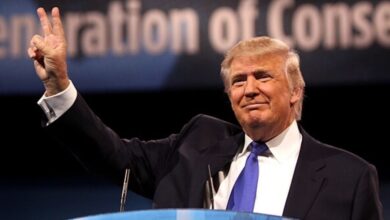Andrew Tate’s Controversial Views on Men’s Emotional Control Sparks Internet Backlash

Andrew Tate Sparks Controversy with Views on Emotional Control in Men
Andrew Tate, a polarizing figure on social media, recently ignited a firestorm with his contentious take on masculinity. On X (formerly known as Twitter), Tate suggested that men who possess emotional control similar to women are more likely to exhibit aggression, sparking widespread criticism and debate. Tate’s perspectives on gender dynamics and emotional expression have been viewed as problematic and provocative, particularly in relation to women. His comments have reignited discussions around toxic masculinity and gender stereotypes, prompting a range of reactions from social media users and influencers.
Andrew Tate’s Controversial Statement on Emotional Control
Amidst ongoing discourse surrounding masculinity and emotional intelligence, Andrew Tate once again made waves with a tweet that garnered substantial attention and backlash. He contended that men being raised to have the emotional control typically associated with women doesn’t result in passive individuals, but rather creates dangerous, aggressive men. Tate’s assertion has sparked a heated conversation about the societal expectations placed on men and the impact of emotional expression on behavior.
Public Backlash and Response to Tate’s Views
Following his polarizing remarks, Andrew Tate faced a barrage of criticism from social media users, with many condemning his views as misogynistic and regressive. One user labeled Tate as narcissistic and misogynistic, echoing the sentiment of countless others who expressed their disapproval of his stance. In contrast, others argued that emotional intelligence and expression are vital for healthy relationships and overall well-being, challenging Tate’s assertions and advocating for a more balanced approach to emotional control. The widespread condemnation of Tate’s views has reignited conversations about gender norms and the importance of emotional literacy for both men and women.
Impact and Conversation Surrounding Tate’s Controversial Tweet
Andrew Tate’s tweet on emotional control and its implications for men has sparked considerable debate and reflection on gender dynamics and societal expectations. With over 600.1K views on X, his statement has reverberated across social media platforms, prompting a diverse array of responses and interpretations. Individuals, influencers, and organizations have been compelled to address Tate’s views, reigniting discussions on the complexities of gender identity and emotional expression. As the discourse continues to unfold, Tate’s comments have catalyzed a broader examination of toxic masculinity and the need for a more nuanced understanding of emotional intelligence.
Concluding Thoughts on Andrew Tate’s Controversial Views
Andrew Tate’s contentious statements on emotional control in men have sparked significant controversy and debate, reigniting critical conversations about gender norms and the societal expectations placed on individuals. The widespread outcry and condemnation of his views reflect a growing recognition of the need for a more holistic, inclusive approach to discussions on masculinity and emotional expression. As the dialogue continues, it is evident that Tate’s comments have amplified the urgency of addressing toxic masculinity and fostering a more nuanced understanding of emotional intelligence.



